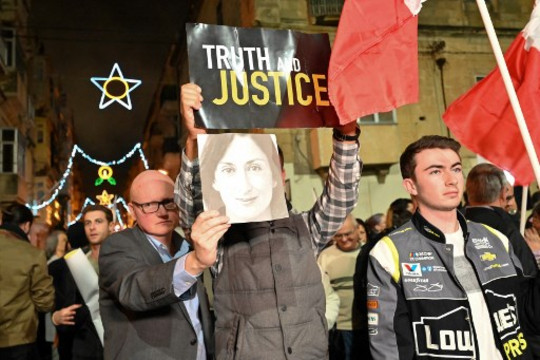According to the public inquiry conducted by three judges, the Maltese state created a “culture of impunity”, but also “failed to recognise the real and immediate risks” to Daphne Caruana Galizia’s life and “failed to take reasonable steps to avoid them”.
Daphne Caruana Galizia, a well-known investigative journalist, was murdered on 16 October 2017 by a car bomb in the town of Bidnija, near her family home. She had been investigating financial corruption, often involving some important political figures of Malta. She had also investigated the Panama Papers scandal.
Prior to the murder, Daphne Caruana Galizia had faced verbal and legal retaliation, continuous harassment and occasional physical threats. She reported it but nothing was done to protect her. Today, the perpetrators of these attacks remain unpunished.
Three men were arrested for her murder in December 2017, and one of them pleaded guilty in February 2021. The other two suspects are still awaiting trial. Yorgen Fenech, a Maltese businessman, has also been charged with complicity, but denies the accusation and is also awaiting trial. Fenech, who is close to certain figures in the Maltese government, is suspected of having bribed some in the case.
According to the independent inquiry, the Maltese government, through its inaction and lack of concrete measures, has created a culture of impunity and has failed in its obligation to protect journalists. In its campaign against impunity in 2018, the IFJ and EFJ had already denounced the lack of independence and media concentration in Malta.
IFJ General Secretary Anthony Bellanger said: “We welcome the findings of the independent inquiry and hope they will prompt the Maltese state to finally take concrete steps to end impunity for crimes against media workers. Ending the culture of impunity for crimes against journalists and ensuring their safety is a precondition for good journalism and democracy.”

